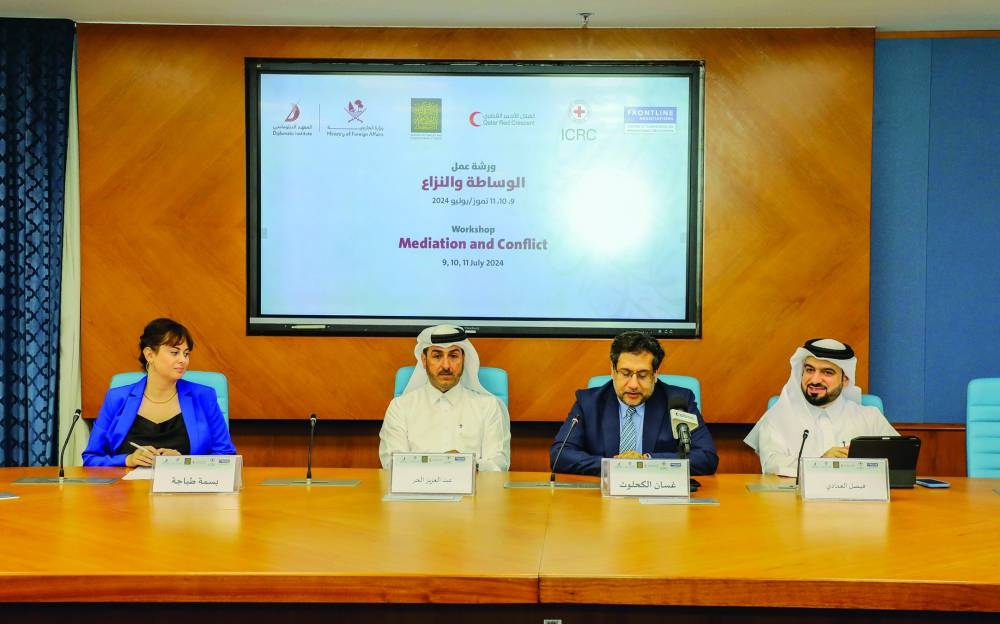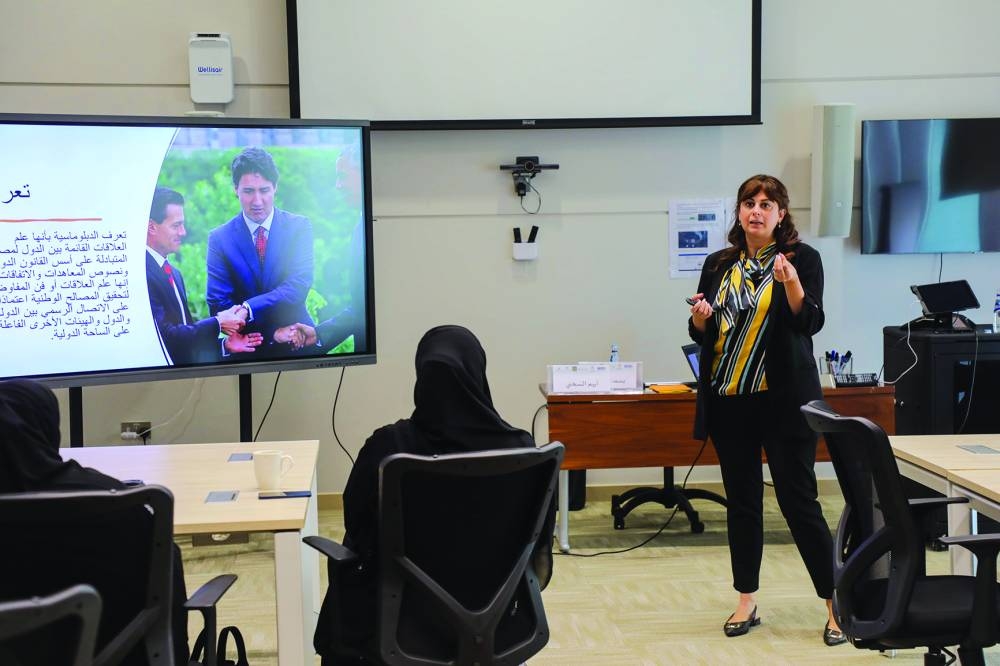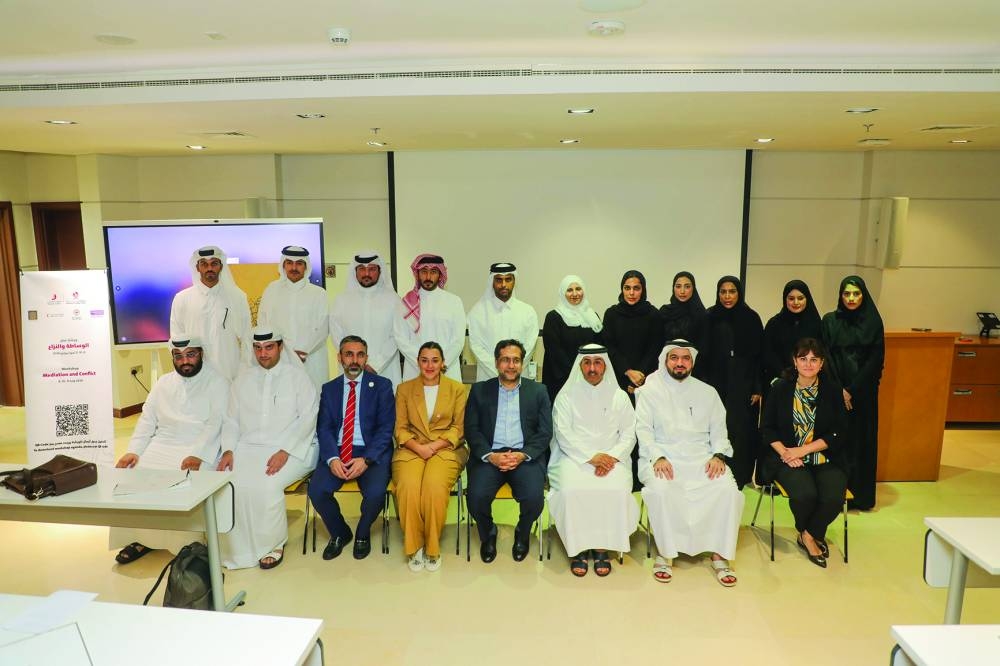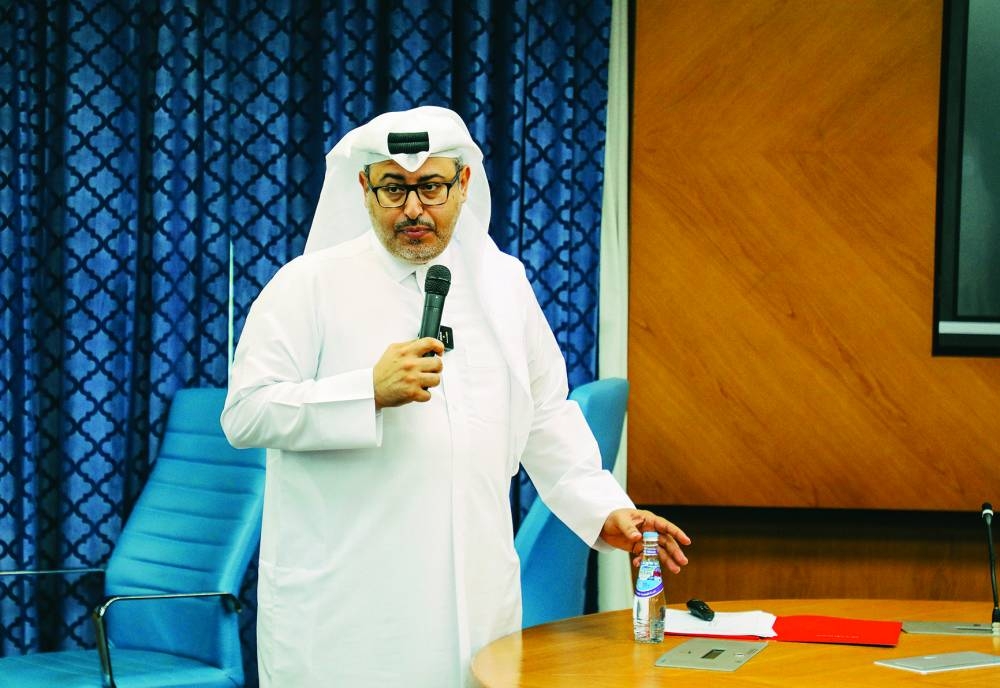The Qatar Red Crescent Society (QRCS) has co-organised a three-day Mediation and Conflicts Workshop, for the benefit of young diplomats, in co-operation with the Ministry of Foreign Affairs (MoFA)’s Diplomatic Institute, the Centre for Conflict and Humanitarian Studies (CHS), the Geneva-based Centre of Competence on Humanitarian Negotiation (CCHN), and the International Committee of the Red Cross (ICRC) – Qatar.
According to a statement from the QRCS, the purpose of the event was to equip diplomats with practical knowledge and skills necessary for effective mediation and conflict resolution in humanitarian contexts.
Through expert-led sessions and interactive discussions, participants gained insights into international humanitarian law (IHL), humanitarian diplomacy, negotiation techniques and the best practices in peace deals and conflict resolution.
QRCS secretary-general Faisal Mohamed al-Emadi said that the world is facing massive challenges in terms of international conflicts, with their serious implications at all levels.
“Armed conflicts have catastrophic impacts on the lives of civilians and are detrimental to community stability,” he said. “Stronger humanitarian and negotiation endeavours are badly needed for security and peacebuilding.”
“Qatar’s international humanitarian and diplomatic role involves not only providing humanitarian aid for affected people at times of crises but also practising active mediation between parties to conflicts and reaching peaceful solutions,” al-Amadi said. “This demonstrates how national humanitarian negotiation capacity-building is critical to make a difference and deal successfully with the current and future complications.”
“We believe that such challenges can be addressed only through co-ordination and collective action,” he added. “This co-operation among humanitarian, academic, and specialised organisations would hopefully enhance the effectiveness of humanitarian and negotiation efforts.”

Snapshots from the workshop.



